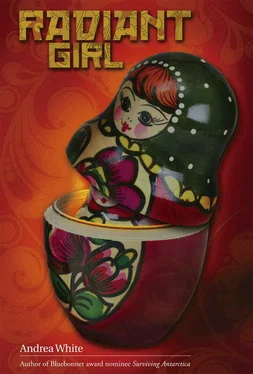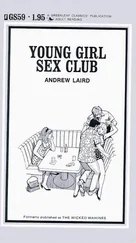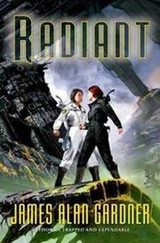Andrea White

Dedicated to Alexander Volkovicher, a wonderful father and man, and to the countless other Chernobyl victims like him.
This is a fictional story based on the true events of the 1986 Chernobyl accident. Any resemblance to any person living or dead is entirely coincidental.

Prologue, 1980

WITH HER EYES CLOSED, Vera Dubko listened to the chorus of crickets outside her window. Spring was here. How many more springs would she see?
Not many…
“Granny?” a little voice called to her from the darkness.
Granny Vera rolled over in the direction of the voice and spotted a bump in the other bed in the room, the one nearer the window. A small person was lying underneath the green knitted blanket.
Her daughter?
No, her daughter was long dead, taken from her by the famine. Stalin’s famine. How she hated that man.
“Granny!” the voice cried out, and this time she recognized it.
Katya. The daughter of her son, Ivan. Her son who was as strong as a bull and as stubborn. “Yes, donechka .”
“Tell me a story,” Katya pleaded.
Once everyone had many stories, but now her son and daughter-in-law had a car, a gas stove, and electric lights. “Have I ever told you about the day I saw our domovyk ?” Granny Vera asked.
“No,” Katya replied. “Papa told me that house elves don’t exist.”
“Your Papa doesn’t know about him,” Granny Vera said.

“Did you see the elf on the mirror?” Katya said.
“Yes. My grandfather carved the figure to remind me of him,” Granny Vera said.
“What was his name?” Katya asked. Her voice was full of awe.
“We never found out his name,” Granny Vera admitted.
“What was he doing?”
When Granny Vera squeezed her eyes shut, she could remember that morning long ago as though it were yesterday. “Now at the beginning…” She began her story using the opening her grandmother had relied on to set the tone. When she spoke these words, she felt connected with her grandmother, with all her ancestors. “My mother had baked a loaf of paska , Easter bread, in the wood oven, and she set it on the kitchen counter to cool.”
“The same wooden counter in our cottage?”
“The same one,” Granny Vera said. “As it was a beautiful day, we went out to the garden to collect some greens. When we returned with our arms full of sorrel and cabbage, a boy stood in our kitchen. He had his back to us.
“My mother called out, ‘Oh, my!’
“I was too startled to say anything. I just watched as this boy, a little smaller than me, whisked away the loaf of bread.”
“Was the domovyk a thief?” Katya asked.
“Noooo,” Granny Vera said. “When he got hungry, sometimes, he took some bread. But he left our valuables alone.”
“He only ate bread?”
“As far as we could tell,” Granny Vera said. She dropped her voice. She tried to make it low and convincing as the boy’s had been. “There’s going to be a thunderstorm tonight,’ the domovyk warned us.
“Maybe so, but leave us some of our bread,” my mother scolded him. She started for the domovyk , but before she could catch him, he jumped out the open window with the loaf under his arm. When we stuck our heads out, all we saw were the cows grazing, the dog on his chain and a neighbor riding by in his horse-drawn cart.”
“What did he look like?”
“He was dressed like a young boy, in brown pants and an embroidered shirt. At first, when we came into the room, I thought he was a villager, but then he turned, and I saw his profile. His blue eye was a little too round, almost like an owl’s. His blond hair was low on his forehead, and there was much hair on the back of his hands. I knew he wasn’t human.”
“Was there a storm that night?” Katya asked.
“The worst,” Granny Vera shuddered, thinking of the thunder and how the very earth had shaken—as though the lightning was going to split the world in two. “Mama was angry about the loss of the bread, but Papa was grateful for the warning. He was able to get the animals, which were our livelihood, safely sheltered.”
“I want the domovyk to come see me, too, Granny,” Katya said. “Now. Tonight.”
“He doesn’t come where he’s not welcome,” Granny Vera said, and her words hurt her. She would never forget when her son, Ivan, a boy of about seven and full of the patriotic talk fed to him by his schoolteacher, informed her that her creatures were superstitious myths. He had said, “Mama, for my country to make progress, we must forget the old ways.” He had gazed squarely into her eyes before adding, “We must denounce them.” Had Ivan been threatening her? In the old days, children were encouraged to tell the authorities about anyone, even parents, who weren’t loyal to the Communist Party.
“Did I tell you about seeing the wood sprite?” Katya asked.
“You did,” Granny Vera said.
“He looked just like a tall reed, but he didn’t fool me. I spotted his face and his tiny little hands,” Katya said.
“You didn’t tell your father, did you?” Granny Vera said.
“You told me not to.”
“Your father makes a good living.” Granny Vera sighed. “We should be grateful. Now go to sleep.”
“If you see a domovyk, will you tell me?” Katya asked.
“I will,” Granny Vera said.
“You didn’t finish the story,” Katya said.
“What?” Granny Vera had already dropped back off into a dream about her wedding and the brown crockery plate that her new mother-in-law had given her. It had little glazed rabbits around the rim. “To symbolize our land, our hearts,” Polina Dubko had said.
“You know what you always say,” Katya reminded her.
Granny Vera did remember. “And so it shall be until the end of the world.”
“Remember, Granny, how I used to get so sad when you said that?” Katya said.
Granny Vera laughed softly. “You would howl and scream, ‘But the world’s not going to end, is it, Granny?’” Her granddaughter’s breathing was even now. When there was no response, she said, “Good night, child.”
As Granny Vera snuggled back down under the covers to listen to the night’s song, she whispered a prayer, “ Gospody , father, she’s so young. Let her remember me. My stories. Let them come alive for her.”
PART I

YANOV, 1986

1986
Chapter One

WHEN I ARRIVED HOME FROM SCHOOL ON MY BIKE, I found my mother waiting on our front step. Our cottage was a three-room house made out of sturdy wood and painted white. Its bright blue shutters made our home look happy, almost grinning.
Читать дальше

















